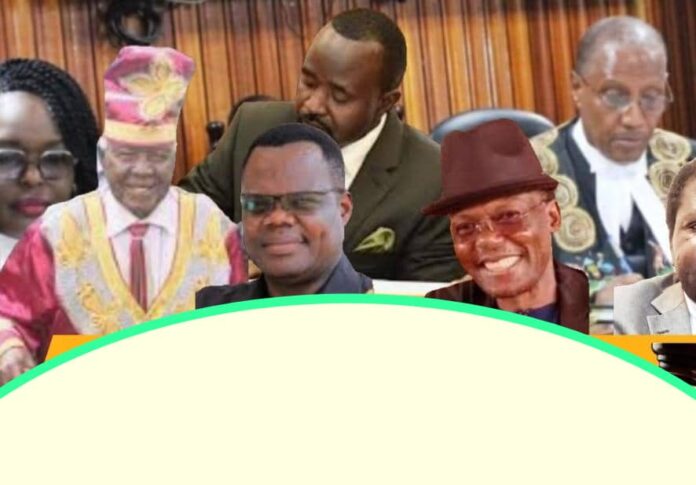The air in Kampala hung thick with the scent of intrigue. Betty Amongi, Gender Minister, also responsible for Culture, a woman whose ambition burned brighter than any midday sun, was orchestrating a high-stakes game, the stakes being the Lango Paramount Chieftainship. Her chosen pawn: Eng. Michael Odongo Okune. Her method: a brazen defiance of the law, a manipulation of the judicial system so blatant it bordered on farce.
The landmark judgment of October 31st, delivered by Justice Philip Odoki of the Lira High Court, had been clear: the abdication of Mzee Yosam Odur Ebii was null and void. Yet, Amongi refused to accept this. Odongo Okune, in her eyes, was the rightful heir, regardless of the will of the Lango people. “Interest,” she declared, waving aside any notion of democracy or tradition, “dictates his ascension.”
Now, her sights were set on a stay of execution—a legal maneuver to temporarily halt the implementation of Justice Odoki’s ruling. Her target: the Kampala Associate Advocates, a group she was subtly pressuring, through a complex web of favors and veiled threats, to twist justice in her favor. The whispered conversations in dimly lit offices and hushed phone calls spoke volumes of the immense pressure being applied. The advocates, wary yet tempted by the considerable financial incentives, were caught in a moral quagmire.
Amongi’s desperation stemmed from a deep-seated fear. Mzee Yosam, frail but clinging to life, held the key. Should he pass away while still Paramount Chief, Ambassador Dickson Ogwang Okul, now a crucial figure in Yosam’s administration, was widely seen as the most likely successor. Ogwang Okul, popular and respected, represented everything Odongo Okune wasn’t: a choice of the people, not a political puppet. A stay of execution, therefore, was not just a temporary reprieve but a gamble to buy time to secure Odongo Okune’s position before Yosam’s inevitable demise.
The whispers also spoke of a previous victim of Amongi’s ruthlessness—a potential Paramount Chief from Eastern Uganda, whose candidacy had been systematically sabotaged. A judge from Lango, allegedly influenced by Amongi, had ensured the Eastern candidate’s disqualification, a maneuver executed with the chilling efficiency of a seasoned mafia don.
The cat, however, was soon to be out of the bag. The audacity of Amongi’s actions was attracting unwanted attention. Whispers within the judiciary were growing louder, fueled by unease amongst those who witnessed the blatant disregard for the rule of law. Journalists, sniffing out the unfolding drama, were digging deeper, uncovering the intricate threads of Amongi’s machinations. The legal challenges to the potential stay of execution were being prepared.
The high-stakes gamble was nearing its climax. Would Amongi succeed in her audacious attempt to impose Odongo Okune on the Lango people? Or would the wheels of justice, albeit creaking under the weight of her influence, ultimately prevail? The coming weeks would reveal all.
The writer is an academic scholar specialized in culture.















